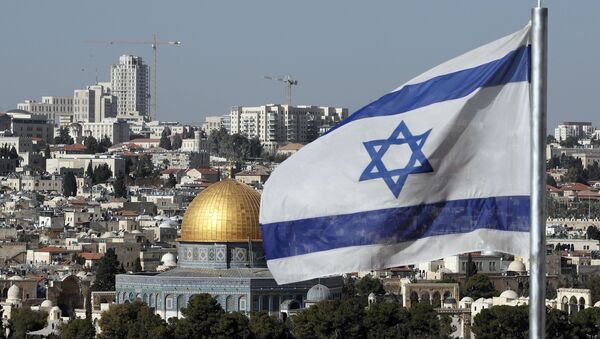When Prime Minister Benjamin Netanyahu announced that his country would soon sign a peace deal with the United Arab Emirates, many in Israel sighed with relief.
The reason was simple: apart from striking a historic deal with yet another Arab nation, the pact came in exchange for Netanyahu scrapping a plan to extend Israel's sovereignty over parts of the West Bank, which had been deemed a "disaster" by many in the country's left-wing circles, who were happy to see it being taken off the table.
However, it was too early for them to celebrate. A day after the declaration, Netanyahu confirmed that his plan to apply Israeli law to big chunks of the West Bank was indeed "delayed", but promised he would never give up on the rights of the Jewish people over the area's land, and people familiar with the PM's thinking confided to Sputnik that he might want to revisit that initiative in the near future.
Israel Doesn't Have Apartheid?
For Israel's liberal circles, however, that option evoked past ghosts, or namely fears that the country would end up absorbing hundreds of thousands of Palestinians, whose health, well-being and security will be piled on the shoulders of Israeli taxpayers but who would not be given any citizenship, nor will they be given equal rights.
"That notion of annexation brought many to the realisation that eventually Israel will turn into an apartheid state, because when you annex territories and absorb peoples without giving them any rights, you are heading in the direction of what South Africa was until the early 1990s," said Dr. Alon Liel, a former Israeli diplomat who served as the Jewish state's ambassador to the African nation back in the 90s.
Liel admits that Israel, within its 1967 borders, is far from being an apartheid state. Racial segregation doesn't exist there on busses, Arab and Jewish children can attend the same schools even though not many opt to do so, and all citizens are given access to the nation's health, education and judiciary systems; Israeli Arabs can vote and be elected into the country's parliament.
However, quite a different picture is depicted in the predominantly Palestinian West Bank, big chunks of which are controlled by Israel.
Palestinian movement there is usually restricted, emergency laws are applied and even the smallest criminal offence between Jews and Arabs is taken to a military court, which is often biased against the Palestinians, something that has prompted comparisons with the apartheid system of South Africa in the late 20th century.
"The comparisons between South African apartheid and Israel's policy in the West Bank have always been there, in the background. Now, however, after Netanyahu has included the annexation into the coalition agreement [with Benny Gantz - ed.], the notion took central stage, and this will inevitably lead to a series of dire repercussions for the Jewish state," warned Liel.
Dire Repercussions
Apart from the fact that the planned sovereignty bill made waves within Israel, where former parliamentarians from centre and left-wing parties dispatched a letter to the US Senate and Congress calling on them to scrap their support for Netanyahu's plans, which could potentially pave the way for apartheid, it has also led to an uproar in the Middle East and the international community, who spoke up vehemently against the move.
It has also made many Jewish supporters of Israel into its bitter opponents. A poll conducted before the sovereignty bill was officially declared as being "delayed" indicated that 42 percent of those asked said they had "unfavourable" views of the plan, as opposed to the 22 percent who supported it.
"There have always been people, who disliked Israel in the past but I am not talking about radicals or anti-Semites. We are talking about a new phenomenon and a wider circle. People, who used to back Israel and who are now removing their support because they see what direction the country is taking and this is worrying."
Right now, says Liel, by delaying the annexation, Israel has avoided the headache of a potential chasm, but if the coalition, comprising of Netanyahu and Gantz, fails to reach an agreement on the nation's budget, the deadline for which is set for the end of December, the drums of elections will start beating again; and that might resurrect the talks of "annexation", just as it has been the case in previous rounds of general polls.
"Many in Israel understand the magnitude of the problem if the country goes ahead with its annexation plans. The PM himself understands the rift this will cause in the society and the crack it will lead to with the world's Jewish community. But if it does take place, we might face another UN resolution, like the one adopted in 1975, that branded Zionism as a form of racism, but this time around it might take us more time and effort to abolish it," Liel summed up.



